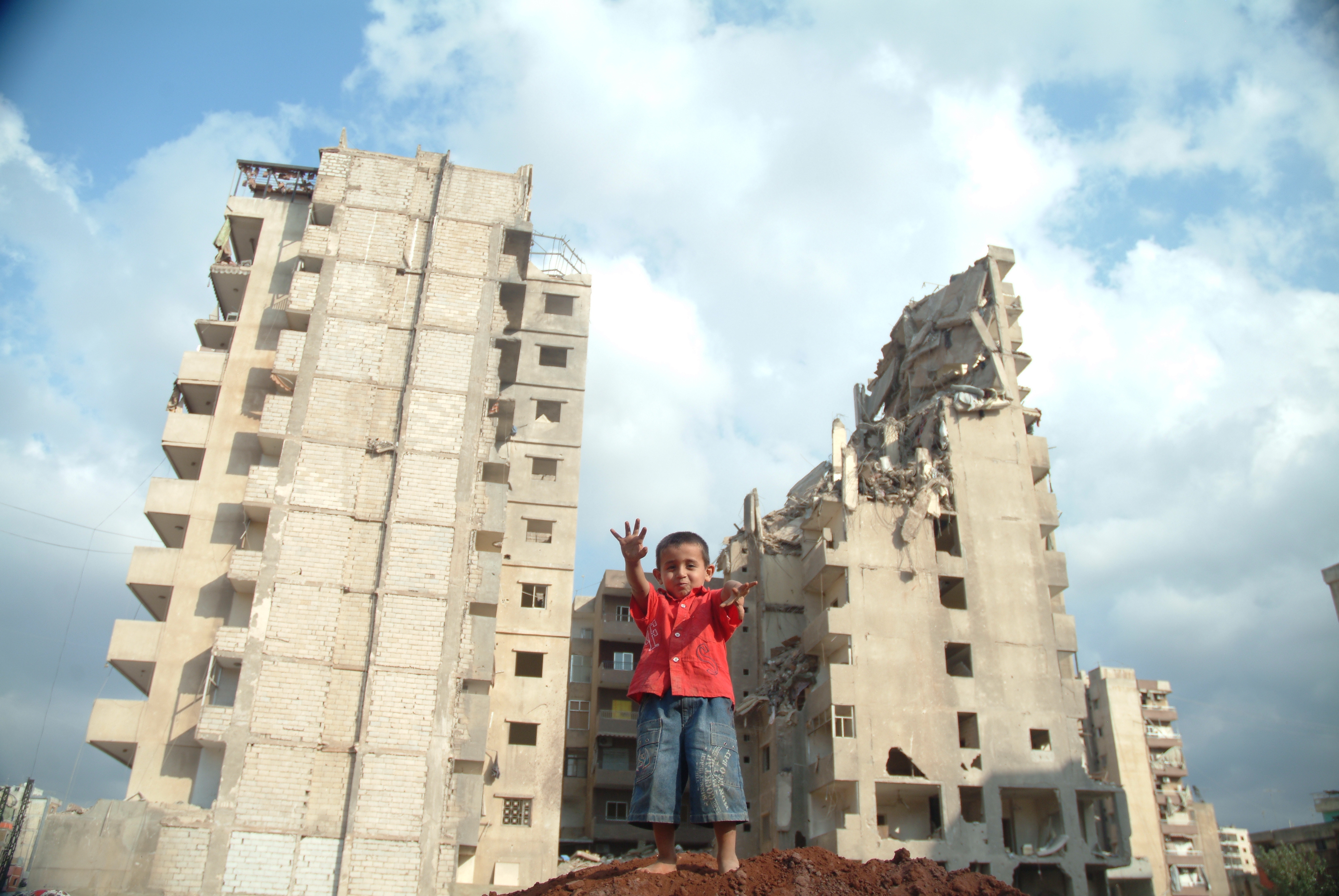"Postcard" from the edge

Speaking of repetition compulsion, the conflict in the Middle East shows no signs of a happy ending. The latest
major installment was the Israeli invasion of Lebanon
in 2006, a brutal campaign which ended with no clear winners but definite
losers -- the people of Lebanon.
Talented local filmmaker Jocelyn Ajami (“Queen of the Gypsies” ) visited the scenes of destruction with a group of American journalists,
scholars and politicians six weeks after the cessation of hostilities. Her 35
minute documentary about her experience, “Postcard from Lebanon,” includes
shocking images of destruction and heartbreaking testimony from survivors.There
is even a terrible beauty in the shots of block after block of shattered white
rubble occasionally broken by a stunned looking armchair, a battered doll or a
dusty shoe — reminders of the people who once lived there.
But the film has a larger purpose, too. As a UN spokesman
explains, the Israeli army’s “unprecedented” use of cluster bombs (notorious for their "dud" rate) blanketed villages in Southern
Lebanon with tiny unexploded bomblets powerful enough to blow a child
to pieces. They have infested peoples homes, gardens and hang from olive trees
like Christmas tree ornaments -- about a million in all, the spokesman
estimated.
Ajami hopes the film will encorage people to demand that the US sign an
anti-cluster bomb treaty that is scheduled to be ratified December 3. 107 countries have signed already. The US is lagging, and Senators Leahy (VT) and Feinstein (CA) are pushing for Congressional resolution to do so.
“Postcard from Lebanon”
screens at the MFA tonight (October 29) at 6:30 p.m. and November 8 at 2:15
p.m. The director will be present and will conduct a discussion.
















